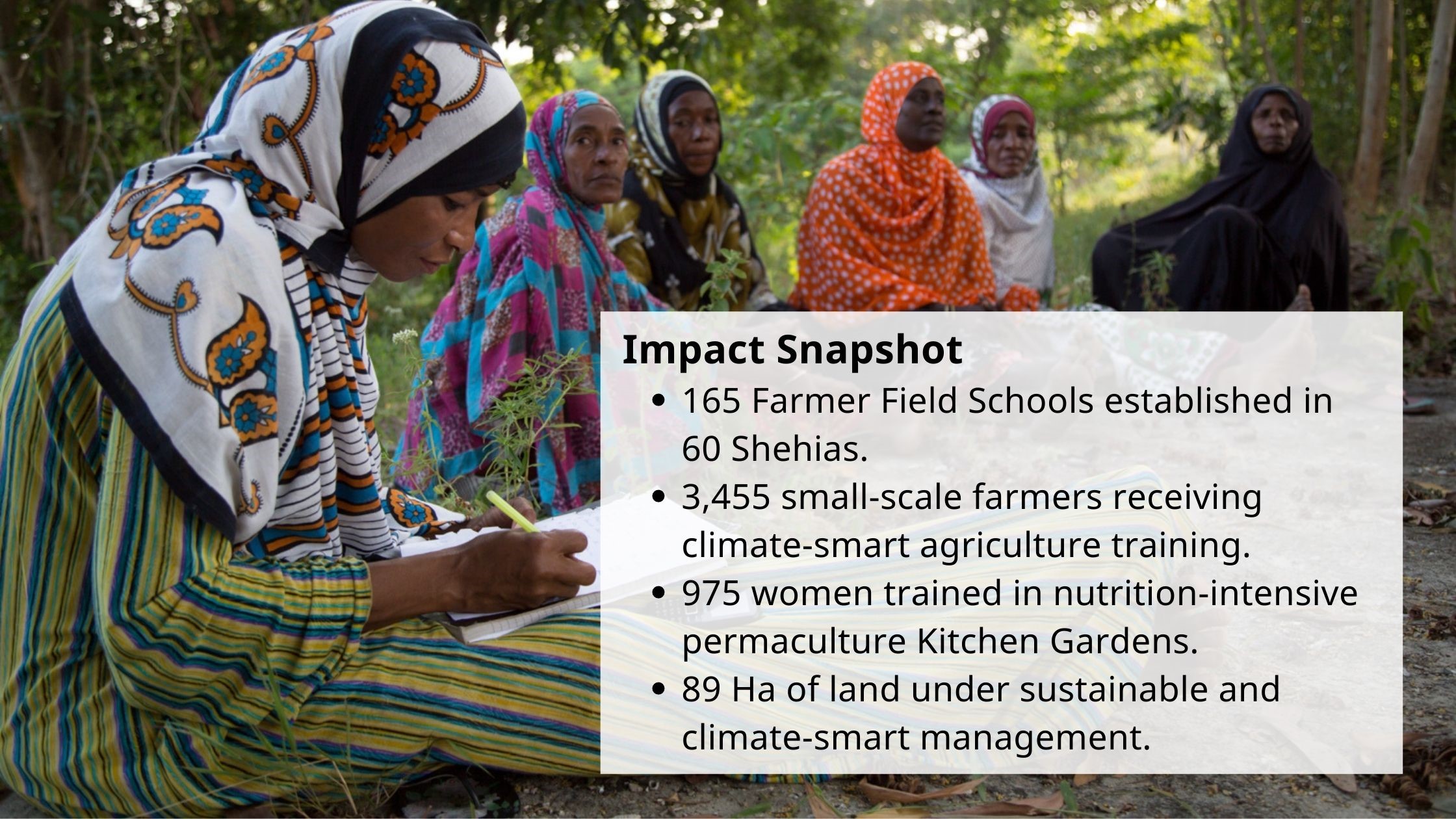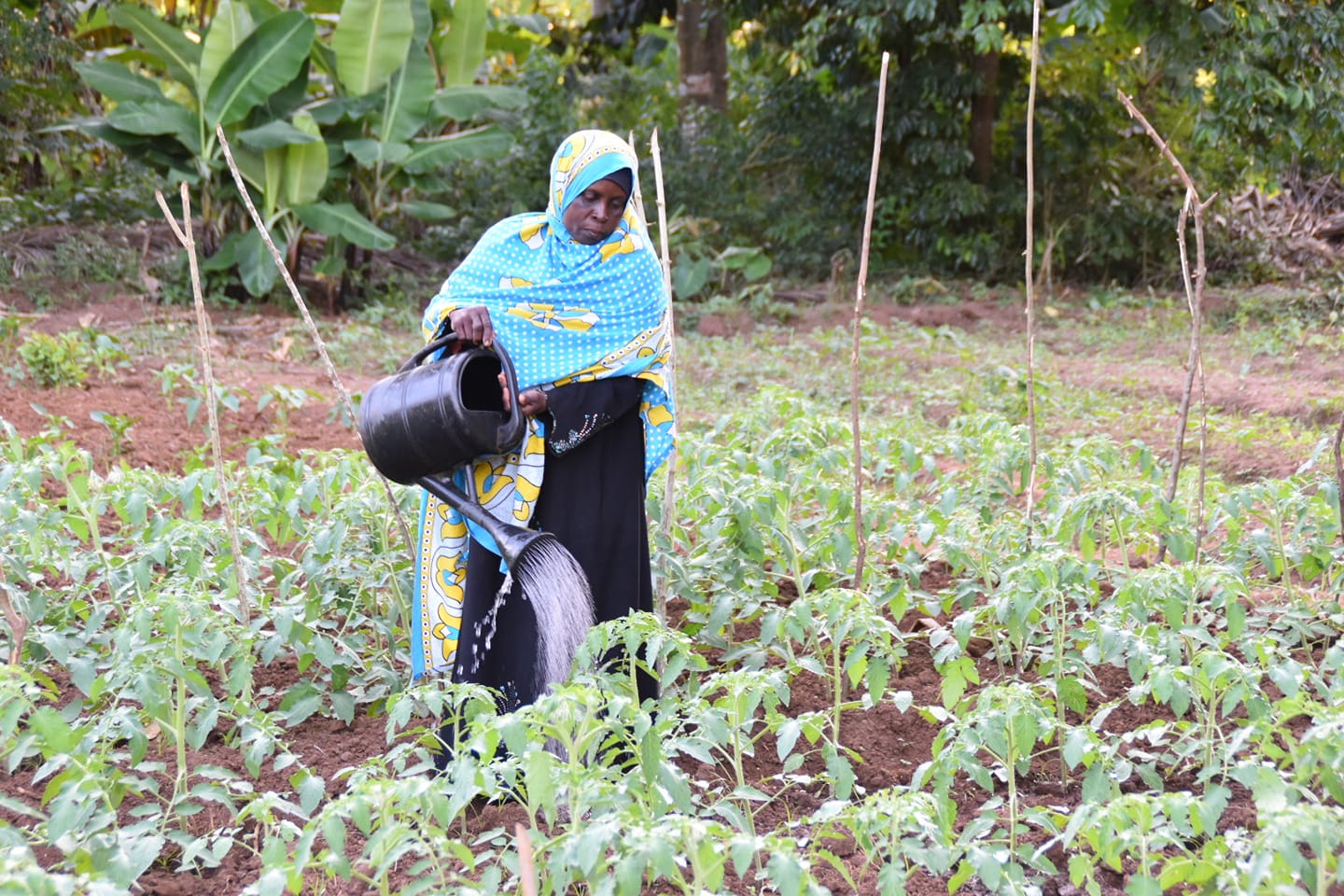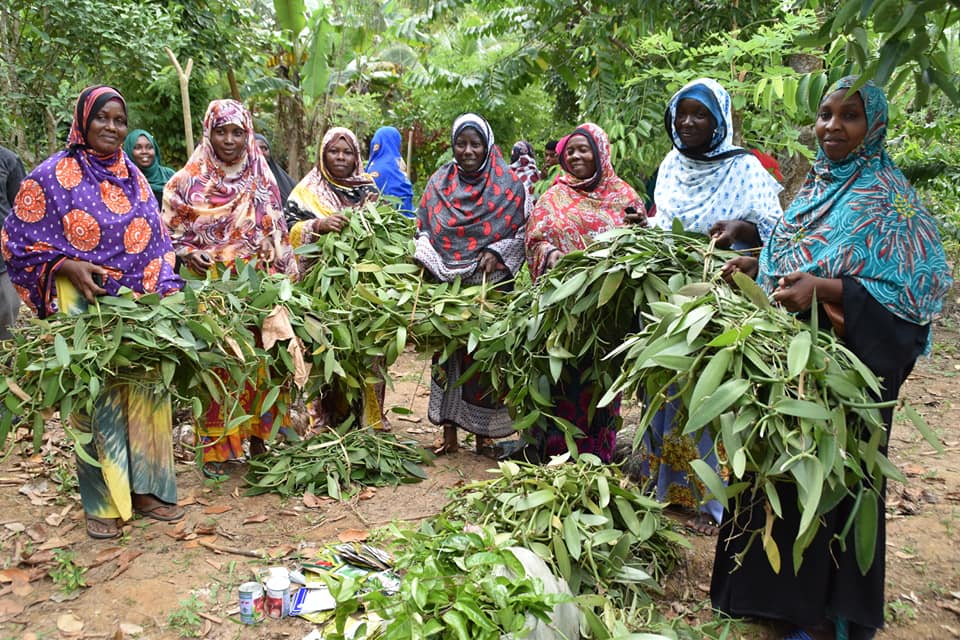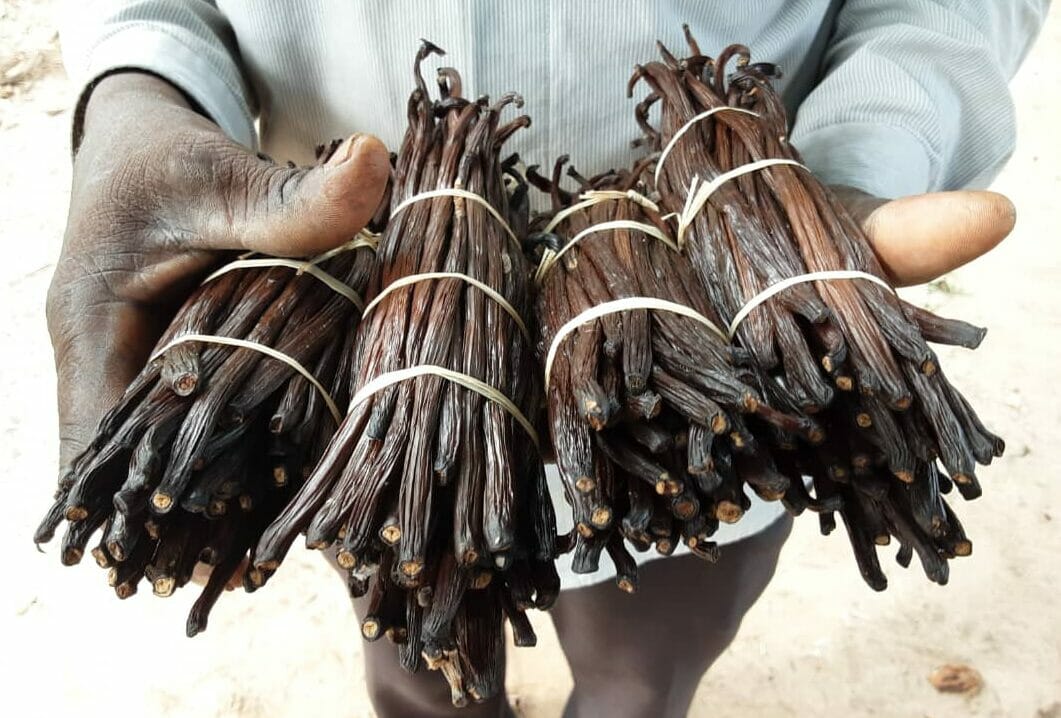Zanzibar's Farmer Field Schools: Growing Resilience
By Rebecca Jacobs, Posted on July 27, 2021
One year ago, Community Forests launched the VIUNGO Project in Zanzibar. Translating to “ingredients” in Swahili, VIUNGO is a four-year collaborative effort between local and international organizations in the region. Together, we are working to support small-scale farmers, empower women and youth, and boost economic growth and opportunity – key ingredients in a recipe for resilience! One year in, we invite you to learn about the growing Farmer Field School initiative and take a look at what’s to come.

Farmer Field Schools: Developing Skills and Leadership
The Farmer Field School model is an innovative, participatory and interactive approach that emphasizes problem-solving and discovery-based learning through in-field, hands-on opportunities.
Farmers registered in the Farmer Field Schools attend a total of 8 sessions, graduating with in-depth knowledge of climate-smart horticulture, principles of crop production and cultivation, crop management, record keeping, and post-harvest techniques. By helping farmers to improve the production and value of their crops through climate-smart practices, we can help boost community food security, economic opportunity, and climate resilience.
“The Farmer Field School approach is used to build farmers’ capacity to analyze their production systems, identify problems, test possible solutions, and eventually encourage the participants to adopt the most suitable practices to their farming systems.” – Shariff Hamad, Pemba Zone Operations Manager
To date, VIUNGO has established 165 Farmers’ Field Schools that offer knowledge and skills related to climate-smart agriculture, post-harvest handling, and integrated pest and disease management. These Farmer Field Schools have already reached over 3,450 farmers in 60 Shehias (communities) across Unguja and Pemba Islands.

Farmer Khadija Hussein Khamis from the Mahonda District of Northern Unguja watering tomatoes in a sustainable agriculture class.
Resilient Solutions
Just over 60% of the people participating in the Farmer Field Schools are women, and nearly 1,000 of them are receiving training specifically in nutrition-intensive permaculture Kitchen Gardens. By ensuring that over 55% of the VIUNGO beneficiaries are women, we are increasing women’s economic independence and uplifting women’s equality in the region.
“When I received information about the existence of this project in my Shehia, I registered to learn in the [Farmer Field School] classroom – and after getting the education, I came to start my farm. I’m thankful that I’ve harvested more than twice, and what I earn helps me give my kids school money.” – Salma Omar Ali, Kitchen Garden participant.
Community Forests and our partners have also developed a teaching curriculum for farmers to become community-based leaders. By training farmers to become teachers themselves, we can grow our impact exponentially – while also ensuring the skills taught are community-driven and informed by the local context and knowledge. This year, nearly 200 Key Farmers from various communities enrolled in the training program. These community leaders will help facilitate knowledge- and skills-sharing to other farmers in their districts through peer-to-peer visits and teaching – and are estimated to reach an additional 3,500 farmers.
Take A Look At What’s Growing
From diverse and nutritious vegetables, tropical fruits, and lucrative spices – the graduates of the Farmer Field Schools receive seeds and other supplies to help support their transition to productive and resilient farming.
Over the past few months, Community Forests Pemba agricultural extension officers have helped distribute:
- Over 15,200 vanilla seedlings to over 228 spice farmers.
- 6,000 banana suckers and 4,000 pineapple seedlings to 158 farmers.
- 5,220 papaya seeds to 87 agroforestry farmers.
- 12,718 grams of diversified Swiss chard, Chinese cabbage, okra, amaranth, cucumber, tomato, onion, beetroot and eggplant seeds to 485 Kitchen Garden farmers.

5,000 vanilla seedlings were distributed to farmers from the Mtambwe, South, and North Wete districts of Pemba Island.
The Year Ahead
Take a look at just some of what communities will achieve in the next year.
- 5,000+ farmers will graduate from the Farmer Field Schools and begin to implement climate-smart and sustainable agriculture best practices on their lands.
- 2,000+ women will graduate from the Farmers’ Field Schools and establish their own income-generating activities, gaining economic independence and growing women’s business opportunities.
- Model climate-smart organic farms will be established in targetted districts across the islands to continue showcasing best practices and techniques.
- Sourcing and distributing new technologies and tools needed by farmers to improve productivity and climate resilience, including water conservation tools and propagation units.

Learn more about the VIUNGO Project!
You can read about why we’re working to support Zanzibar’s promising horticulture sector and how we’re putting women’s equality at the forefront. Plus, stay tuned for future updates, including how Community Forests is working alongside the governmental and private sectors to seek out key market opportunities for Zanzibar’s small-scale farmers.
To support the VIUNGO Project and the rest of Community Forests’ work for climate and communities in Zanzibar, you can donate to our annual Plant 4 Pemba campaign or become a monthly donor today.
The VIUNGO Project is a collaborative effort between Community Forests International, Community Forests Pemba, the People’s Development Forum, and the Tanzania Media Women’s Association, with funding from the European Union in Tanzania.
